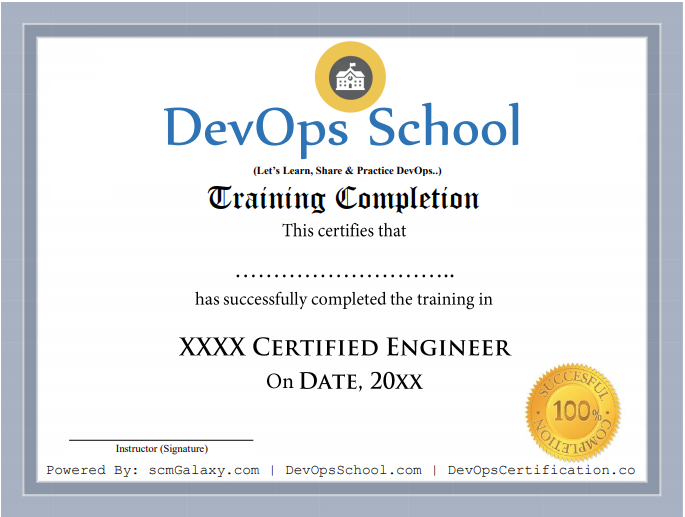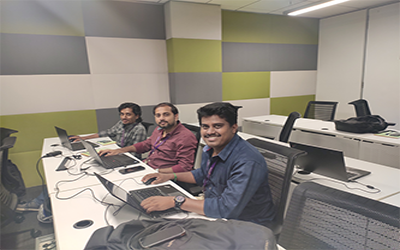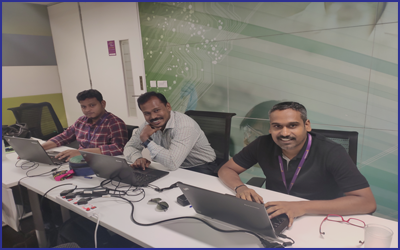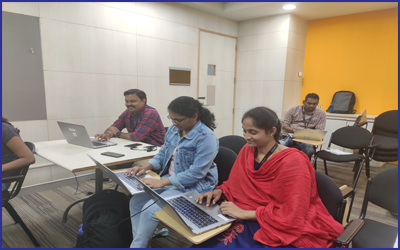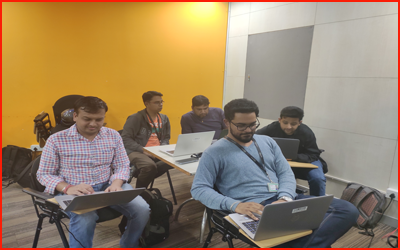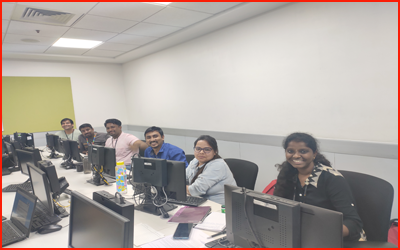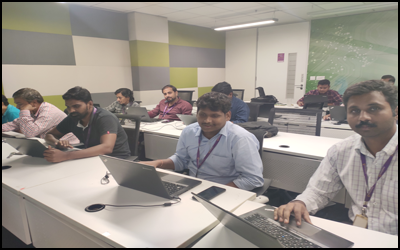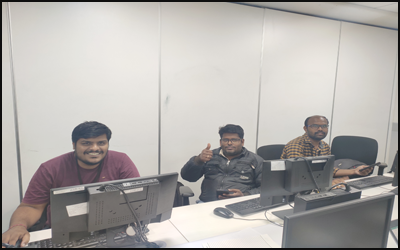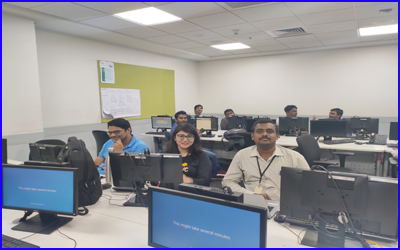8000+
Certified Learners
15+
Years Avg. faculty experience
40+
Happy Clients
4.5/5.0
Average class rating
What is Container?
A container is a lightweight, standalone, and executable software package that contains everything needed to run an application, including the code, runtime, system tools, libraries, and dependencies. Containers provide a consistent and isolated environment for applications to run, ensuring that they behave consistently across different computing environments.
Why Container Security is important?
Container security is crucial due to the following reasons:
- Isolation Breaches: Containers provide process-level isolation, but if not properly secured, vulnerabilities or misconfigurations within containers can be exploited to breach that isolation. An attacker who gains access to one container can potentially access other containers or the underlying host system, leading to data breaches, unauthorized access, and potential system compromise.
- Image Vulnerabilities: Containers are built from container images that contain the application code, dependencies, and configurations. If these images contain known vulnerabilities, attackers can exploit them to gain unauthorized access or execute malicious code. Regular vulnerability scanning and image hardening practices are essential to mitigate such risks.
- Runtime Threats: Once containers are running, they can be exposed to runtime threats. These threats include container escape attacks, privilege escalation, container-to-container attacks, and unauthorized lateral movement within the containerized environment. Proper runtime security controls are required to detect and prevent these threats.
- Container Orchestration Risks: Container orchestration platforms like Kubernetes introduce additional security considerations. Inadequate security configurations or mismanagement of secrets, RBAC (Role-Based Access Control), network policies, and pod security policies can leave the containerized environment vulnerable to attacks or unauthorized access.
- Compliance Requirements: Organizations may have regulatory or compliance obligations that require maintaining the security and privacy of data within containers. Failure to meet these requirements can lead to legal consequences, reputational damage, and financial losses.
- Supply Chain Risks: Containers rely on third-party images and dependencies, which can introduce supply chain risks. Malicious or compromised images from external sources can lead to the deployment of containers with backdoors, malware, or other vulnerabilities. Container security practices should include proper validation and verification of external images and dependencies.
- Incident Response and Forensics: In the event of a security incident or breach within a containerized environment, effective incident response and forensics capabilities are necessary to investigate the incident, identify the root cause, and implement remediation measures. Container security practices should encompass incident response planning and the availability of relevant tools and techniques.
Why DevOpsSchool?
DevOpsSchool is considered one of the best options for container security training due to the following reasons:
- Expertise and Experience: DevOpsSchool has a team of highly skilled and experienced trainers who specialize in container security. They possess in-depth knowledge of containerization technologies, container security best practices, and industry trends. Their expertise ensures that participants receive high-quality training and relevant insights.
- Comprehensive Curriculum: DevOpsSchool offers a comprehensive curriculum that covers all essential aspects of container security. The training agenda includes topics such as container security challenges, best practices, image vulnerability scanning, runtime security, network security, container orchestration security, incident response, and more. The curriculum is designed to provide a holistic understanding of container security concepts and practical implementation techniques.
- Hands-on Approach: DevOpsSchool emphasizes a hands-on approach to learning. Participants engage in practical exercises, labs, and workshops to apply their knowledge in real-world scenarios. This hands-on experience helps participants develop the necessary skills and confidence to secure containerized environments effectively.
- Customization and Flexibility: DevOpsSchool understands that each organization or individual may have unique requirements. They offer customization options to tailor the training program according to specific needs. This flexibility ensures that participants receive training that aligns with their goals and objectives.
- Industry-Relevant Content: DevOpsSchool keeps its training content up-to-date with the latest industry practices and standards. They incorporate real-world examples, case studies, and practical use cases to make the training relevant and applicable to participants' work environments.
- Support and Community: DevOpsSchool provides ongoing support to participants even after the training program ends. They offer access to a community of experts and practitioners where participants can seek guidance, ask questions, and share experiences. This support system fosters continuous learning and professional development.
- Reputation and Recognition: DevOpsSchool has gained a strong reputation in the industry for delivering high-quality training programs. They have trained numerous professionals and organizations globally, earning positive reviews and testimonials. Their recognition in the industry is a testament to the quality and effectiveness of their training.
Prerequisites
To make the most of the Container Security training, participants should have a solid understanding of the following prerequisites:
- Containerization Basics: Familiarity with the basic concepts of containerization, including containerization platforms like Docker and container orchestration systems like Kubernetes.
- Networking Fundamentals: Knowledge of networking fundamentals, including IP addressing, subnets, ports, and protocols. Understanding concepts like firewall rules, network segmentation, and encryption will be beneficial.
- Linux Command Line: Proficiency in working with the Linux command line interface (CLI) is essential as containers are commonly deployed on Linux-based operating systems. Knowledge of commands for navigating directories, file manipulation, process management, and package installation is important.
- Security Fundamentals: A solid foundation in general security principles and practices is necessary. Familiarity with concepts like access controls, encryption, secure coding practices, vulnerability management, and incident response will help in understanding container security concepts.
- CI/CD and DevOps Concepts: Understanding Continuous Integration/Continuous Deployment (CI/CD) pipelines and DevOps practices will provide a context for integrating container security practices into the software development lifecycle.
- Basic Containerization Experience: Having hands-on experience with containerization platforms like Docker and container orchestration systems like Kubernetes will be beneficial. This includes knowledge of container image creation, deployment, and management.


